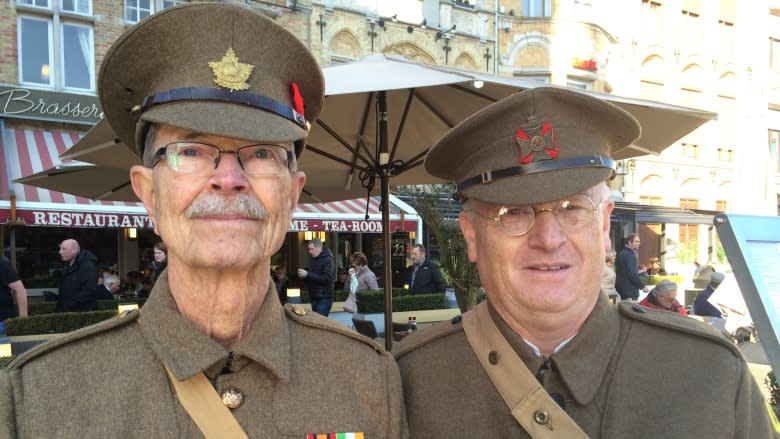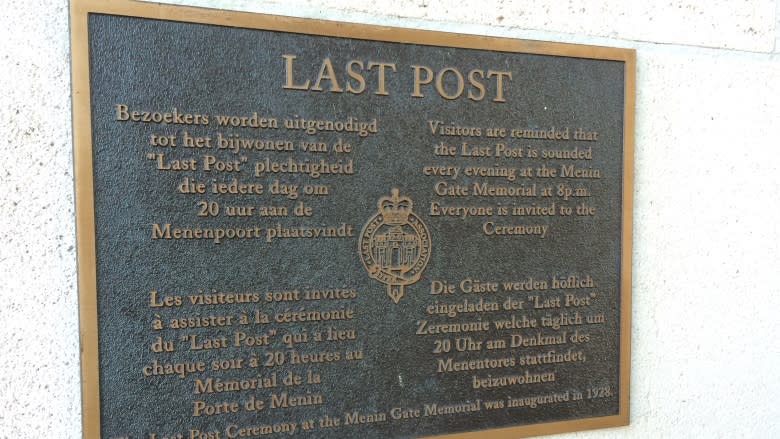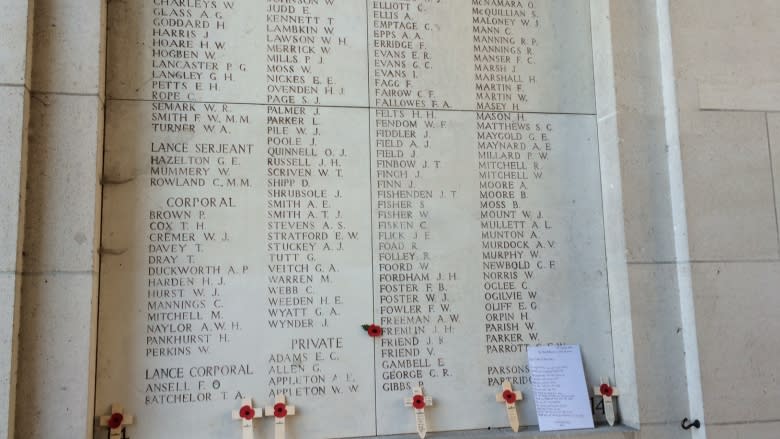Remembrance Day: Ypres: The city that never forgets
Every evening in Ypres, a crowd stands silently under the imposing Menin Gate, a grand archway covering the route Allied soldiers took to the front lines during the First World War, as buglers sound a stirring rendition of the Last Post.
The ceremony has been a nightly ritual since the late 1920's when it was established as a way of honouring the soldiers who died trying to defend the city during WWI.
Its continuous run interrupted only by the Second World War, the commemoration shows that for Ypres, a conflict often thought of only once a year on Remembrance Day in other places, is etched into daily life.
"We still live with it, you can see it in many things around Ypres," said Jacky Platteeuw, honorary secretary of the Last Post Association.
The First World War saw more than 500,000 soldiers killed on the bloody battlefields of West Flanders, the Belgian province where Ypres is located.
And along with Last Post ceremonies, other reminders of the war permeate the landscape, from sprawling cemeteries where thousands of soldiers are buried to countless memorials where the numbers of thousands more are inscribed.
Piet Chielens, a curator at the In Flanders Fields Museum, called WW I one of the most poignant parts of the town's identity.
"When you live in this town with the presence of the war, that terrible event, it's in the back of your, mind, always," he said. "There is no other way of looking at the world if you live here. It's not something you forget."
Canadians remember in Ypres
The inescapable link of Ypres to the past not only plays on the minds of its residents, but it also makes the city the must-be place for many of those wanting to remember the war.
Brian Tarry, a former serviceman from Saskatoon, has been travelling to Ypres on Remembrance Day for more than 10 years. This year he and a group of friends decided to wear WW I-style uniforms as a way of paying homage to the soldiers.
He said Ypres is one of the only places where the chaos of what happened during WW I can truly be felt.
"If people aren't reminded then it will all be forgotten and everybody will do the same stupid things that happened in the past," he said. "This is where it all happened, and this is where it should be remembered."
Tarry isn't alone in his thinking, particularly this year which marks 100 years since the war began. More than 578, 000 visitors have descended on the region so far in 2014, a number expected to rise to 750, 000.
Between 2014 and November 2018, the month marking the centenary of the end of the war, it's estimated that more than two million will have visited Ypres and the area around it.
Another Canadian, Graham Kerr from Fredericton, brought his parents, both in their 80s, just in time for Remembrance Day.
"It was on their bucket list so we had to come," Kerr said. "The way things are in this world it's important to remember what happened here...It's a very moving place."
'We are surrounded by graves'
But for those born and raised in and around Ypres, it's not always easy living among so many scars from the past.
"We see the graves every day. If we drive in the streets, if we just go shopping or just for coffee, we see them every day," said Evita Gilgemyn, who grew up 20 minutes outside the city. "We are in the centre of everything here."
Many people try to not think about the horror of what happened all around them as they go about their daily lives, according to Gilgemyn, who said they wouldn't be able to cope otherwise.
But those thoughts of remembrance inevitably come flooding in whenever she stands under Menin Gate and hears the Last Post.
"It's not realistic to be emotional about it every moment of every day because then you can't live anymore," she said. "But when I stand under the gate at 8 p.m. [for the ceremony] then suddenly I realize why this is happening and why we do it every night...It's very emotional."




